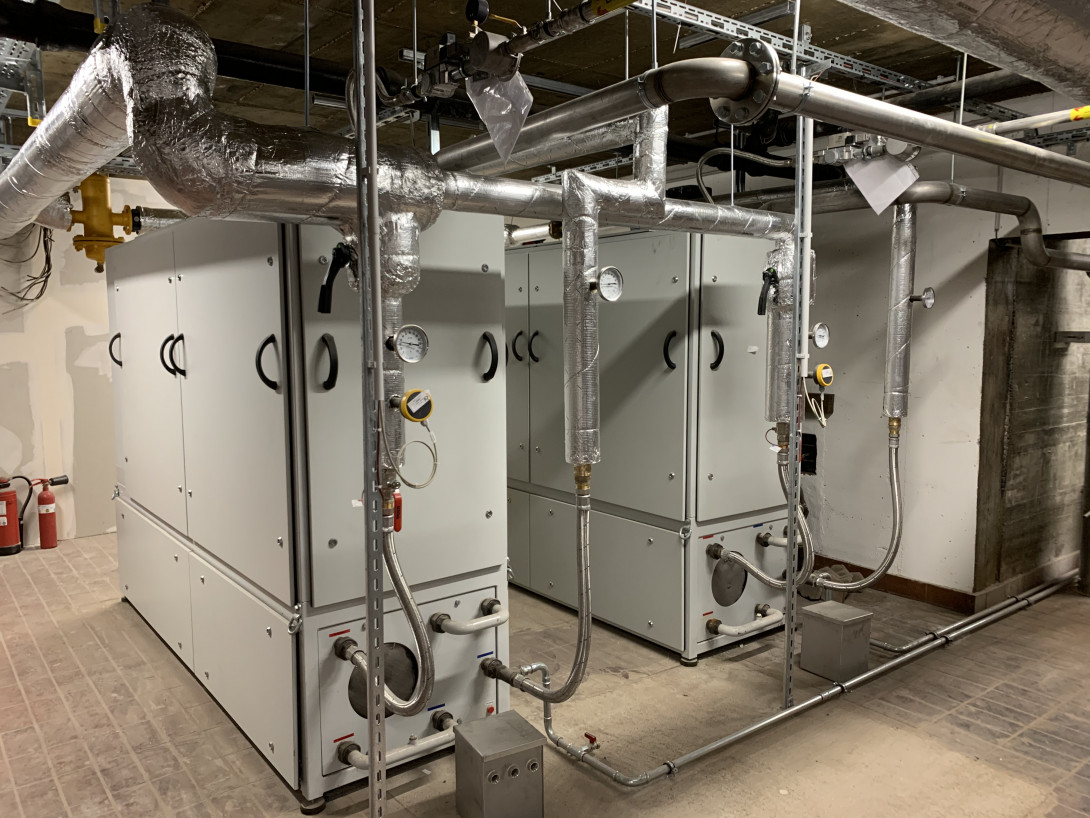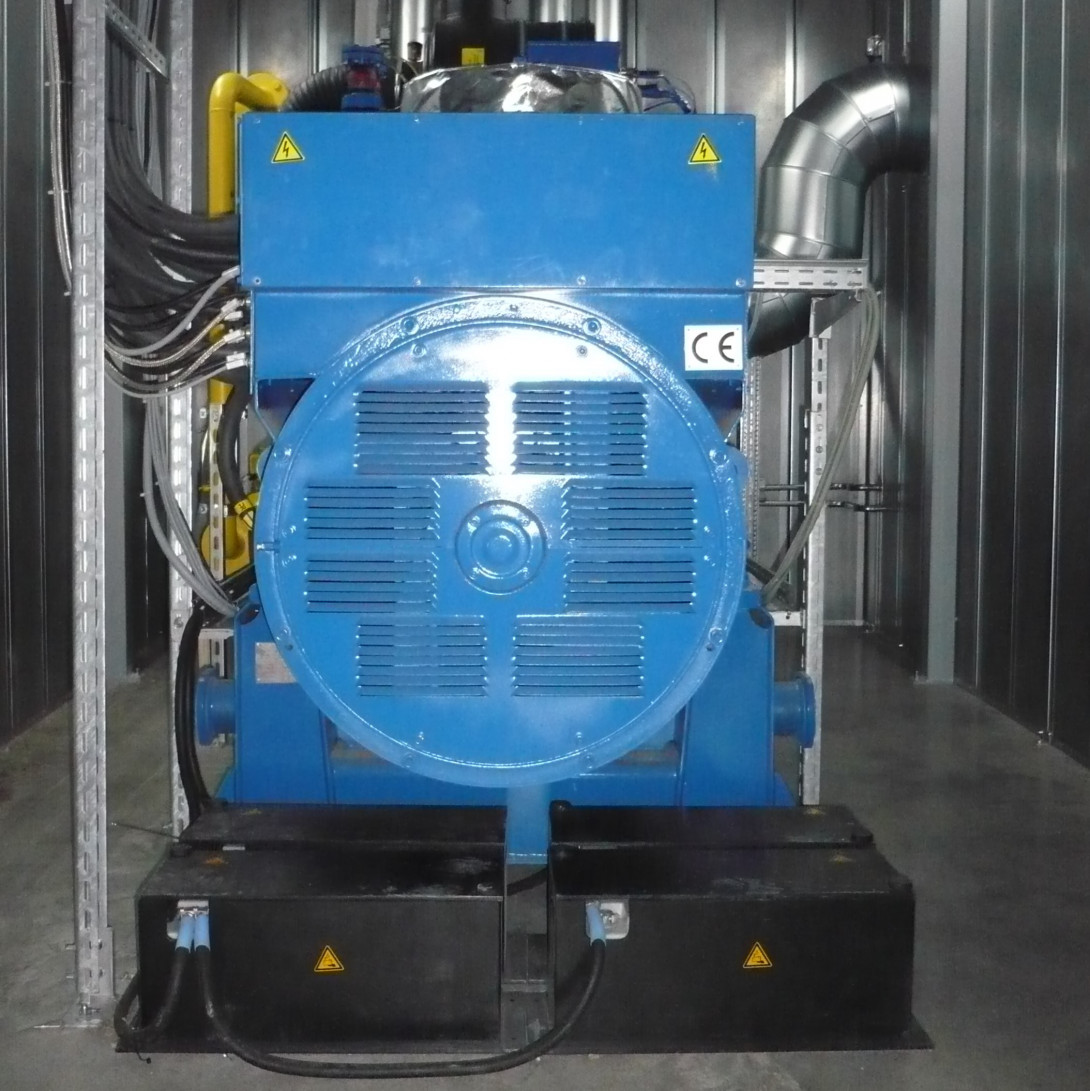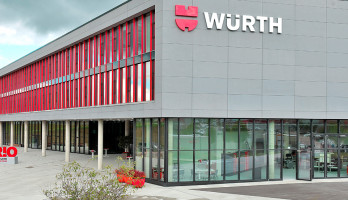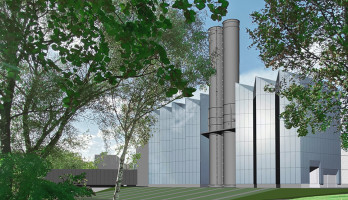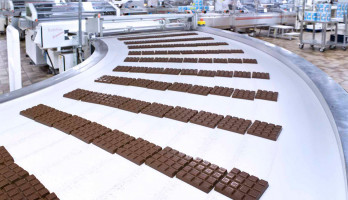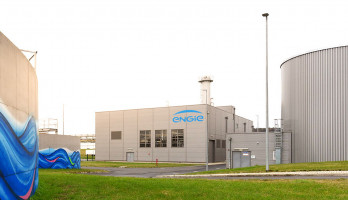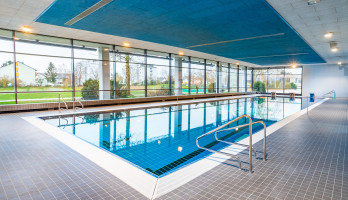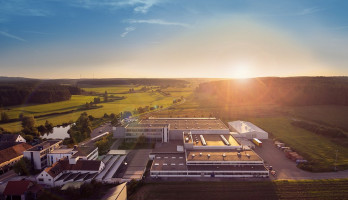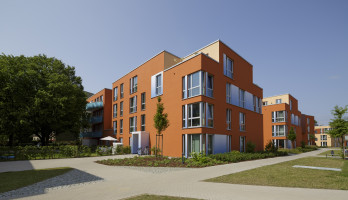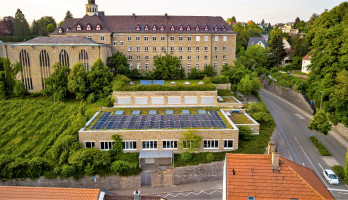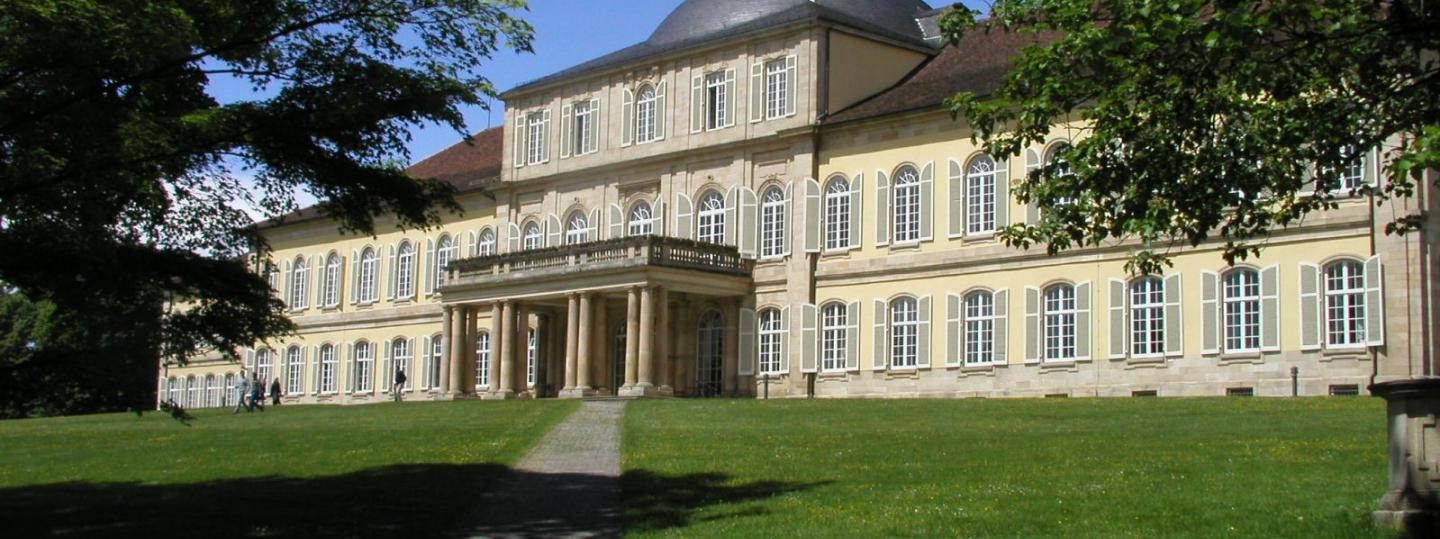
Energy saving contracting gives guarantee for the University of Hohenheim
One quarter of energy costs and over 6,000 tons of CO2 saved per year
Solution:
Energy saving contractingThe energy consumption on the campus of the University of Hohenheim was to be significantly reduced. To this end, the University of ENGIE commissioned Germany to analyze the savings potential and the necessary investment expenditure for the campus with approximately 130 buildings and a total useful area of approximately 135,000 m². The result: 960,000 euros, which corresponds to 24.5 % of the previous energy costs, could be saved per year by targeted renovation and optimization measures in the field of housing and supply technology. As part of an energy saving contracting, ENGIE Deutschland was commissioned to implement the proposed measures.
Customer benefits
Our services
A comprehensive energy concept was created for the school, which exploits energy saving potential and at the same time eliminates the structural renovation requirements in the building. The measures implemented by ENGIE range from the installation of two combined heat and power stations, energy saving lighting, insulation of the building shell, modern ventilation and pool water technology, renovation of the sanitary installations, to structural measures such as tile work or the renovation of the changing rooms. The energy savings achieved speak for themselves: 58 % lower electricity costs, 41 % lower heat costs and 68 % lower CO2 emissions.
ENGIE assumes the necessary investments of around 4.4 million euros within the framework of the contract, which are refinanced by the savings during the contract period of 6.5 years. The university therefore bears neither costs nor risks, but immediately benefits from renovated plant technology and - after the end of the contract - from significantly reduced energy costs.
Heat is supplied to the entire university areal for heating, air conditioning systems and DHW heating via a heating center with three hot water boilers, each with two dual-fuel burners. The heat is transported into the buildings via four district heating networks (North, South, East and West).
The core of the efficiency measures is the installation of a combined heat and power station in the heating center with an electrical output of approximately 800 kW. A further central measure is the establishment of a separate hot water supply for the cafeteria, which is the only consumer that requires high temperatures all year round for cooking purposes. This enables the district heating network to be run with a seasonally variable flow temperature. In some buildings, extensive structural measures are carried out: The agricultural technology hall will receive a new ceiling heating system and the data center will receive a new cooling and air conditioning system. Free cooling will be installed in the Biocenter using the existing cooling tower system. This allows energy-efficient cooling with cold outside air in winter.
As general measures, the control cabinets and control technology are being renovated in about 30 buildings and the pumps and valves are being replaced. Some of the district heat transfer stations and water heaters will be completely renewed. In a further 20 buildings, the existing control systems are being expanded and the operating modes of heating and ventilation systems optimized.
All newly installed control systems will be connected to the existing building management system. ENGIE is also installing a new energy management system for more than 300 electricity, heat and water meters, of which 95 meters will be newly installed by ENGIE. The building management system and the energy management system are linked to one another for the correlation of energy consumption data and plant operating states. Energy reports and mass data analyses should be created automatically. Overall, ENGIE will have invested more than EUR 4.4 million in the conversions by the end of 2012. ENGIE will then take over the maintenance and repair of the new plants over a period of 6.5 years and monitor the energy consumption. During this period, ENGIE will refinance the costs incurred by saving EUR 960,000 per year. As a result of the project, the University of Hohenheim is able to clear a significant portion of its renovation backlog. And the environment also benefits: the CO2 savings achieved should amount to 6,140 tons per year. This is equivalent to about 700 households.
